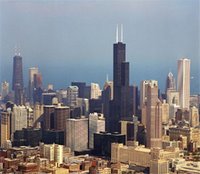
"It's the only place in the country where we expect [both] prices and sales to rise this year."
While talk of a "housing bubble" has reached a crescendo in many parts of the nation, the topic barely rates a whisper across the Midwest.
That's because, in most Heartland markets, there's simply no bubble to burst.
"We haven't seen those types of wild [price] increases that people in Florida and California saw over the last several years, so we're not really in a position where prices could come crashing to the ground," says Joe Banyai, a Michigan real estate broker and regional vice president of the National Association of Realtors.
"Our market is slow but steady," he adds. "And to be honest, I'd rather have a market where prices are relatively stable, year after year, than a market where prices go up 20 percent in one year and might drop 25 percent the next."
To be sure, the Midwest has been the wallflower in the nation's long housing dance. While the value of a typical U.S. home has climbed about 11 percent a year since 2001 and gains in the Northeast and West have approached 20 percent, prices across the Midwest have risen a more sanguine 7 percent annually and values in some of its submarkets have been virtually flat.
But now, as mortgage rates keep climbing and some jittery sellers in places like Miami and Los Angeles begin to slash their asking prices as the spring home-buying season begins, many forecasters say that the Heartland will weather housing's downturn -- whenever it may come -- better than most other parts of the country.
"The Midwest hasn't seen the big type of run-up in prices that some other parts of the U.S. have seen, so now it's got some 'built-in' protection against a nationwide slowdown," says Lawrence Yun, an economist and managing director at NAR in Washington, D.C.
"Basically, if you have a job in the Midwest, you can still afford to buy a home even though mortgage rates have risen," Yun adds. "It's the only place in the country where we expect [both] prices and sales to rise this year."
Some parts of the region will certainly fare better than others this spring, and perhaps in years to come.
In Chicago, values are expected to rise between 5 percent and 10 percent this year as the area's diversified economy continues churning out jobs at a steady rate. Prices in St. Louis and Kansas City are also expected to increase about 5 percent, most analysts say.
Indeed, while a record 72 of the 145 metropolitan U.S. markets tracked by NAR saw double-digit price gains in the fourth quarter of last year, five of the six areas that saw actual price declines were in the Midwest.
By Dave Myers
Inman News
(edited)




No comments:
Post a Comment